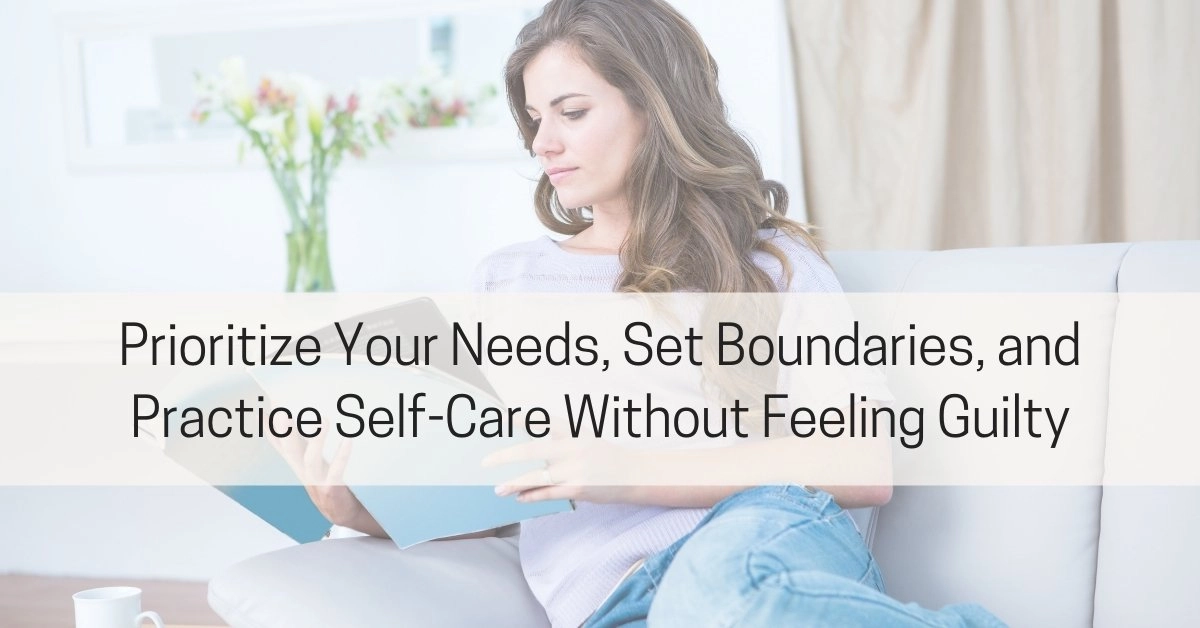Understanding the Importance of Boundaries
What Are Personal Boundaries?
Personal boundaries are like invisible fences you build around your emotional, mental, and physical space. They let others know what is and isn’t acceptable behavior toward you. Imagine them as the rules of engagement that keep your peace intact.
Why Are Boundaries Crucial for Mental Health?
Without boundaries, you’re like a phone without a protective case—constantly at risk of being cracked and worn down. Boundaries help preserve your mental energy, self-esteem, and overall well-being. They make relationships healthier and your life far less stressful.
Common Reasons We Feel Guilty About Setting Boundaries
Fear of Disappointing Others
Let’s face it, none of us likes being the “bad guy.” We fear that by setting limits, we’ll let people down or seem unkind. But remember, disappointment is a natural human emotion—it’s not your job to shield everyone from it.
Pressure to Be “Nice” All the Time
From a young age, many of us are taught that being agreeable equals being good. But being “nice” at the cost of your own well-being isn’t kindness—it’s self-abandonment.
Cultural and Family Expectations
Sometimes, the biggest guilt-trips come from deep-rooted cultural or family traditions where self-sacrifice is glorified. It’s tough, but recognizing these ingrained beliefs is the first step toward breaking free.
How to Identify Where You Need Boundaries
Recognizing Signs of Overextension
If you’re constantly drained, resentful, or stretched too thin—you’re overdue for some serious boundary setting. Think of these feelings as your internal alarm system blaring, “Enough!”
Listening to Your Emotional Triggers
When you find yourself feeling angry, uncomfortable, or resentful in certain situations, it’s often a sign that a boundary is being crossed. Pay attention; your emotions are wise guides.
Steps to Set Boundaries Without Guilt
Start Small and Build Confidence
You don’t have to overhaul your entire life overnight. Begin with something manageable, like declining a social invite you don’t feel up for. Small wins boost your confidence for bigger challenges.
Be Clear and Direct in Communication
Say what you mean without being mean. Clear is kind. For instance, “I can’t take on extra work this week” is much better than vague excuses that invite negotiation.
Practice Saying “No” Without Overexplaining
You don’t owe anyone a thesis paper on why you’re setting a boundary. A simple “I’m not available” is enough. Trust that “No” is a full sentence.
Prepare for Pushback Gracefully
Expect some resistance—especially from people who benefited from your lack of boundaries. Stand firm, stay calm, and remember: their reaction is not your responsibility.
Mindset Shifts to Reduce Guilt
Understand That You’re Not Responsible for Others’ Feelings
Everyone is responsible for managing their own emotions. Setting a boundary might upset someone, but it’s not an attack—it’s self-respect.
Reframe Boundary-Setting as an Act of Love
Boundaries aren’t barriers; they’re bridges to healthier relationships. When you honor your needs, you show up more authentically and sustainably for others.
Practical Tips for Daily Boundary Setting
Use “I” Statements to Express Your Needs
Instead of blaming or accusing, speak from your perspective: “I need some quiet time after work,” or “I feel overwhelmed when plans change last minute.”
Set Digital Boundaries (Texting, Emails, Social Media)
You’re not obligated to be “on” 24/7. It’s okay to turn off notifications, delay replies, or even unplug entirely. Your time and attention are precious resources.
What to Do When Guilt Creeps In
Acknowledge It Without Judgment
Guilt isn’t the enemy—it’s just a feeling. Notice it, name it, and remind yourself that emotions are temporary. They don’t dictate your actions unless you let them.
Remind Yourself of Your Values and Priorities
Why did you set this boundary? To protect your peace? To honor your values? Ground yourself in your “why” whenever guilt tries to shake you.
The Long-Term Benefits of Setting Healthy Boundaries
Improved Relationships
Surprisingly, boundaries can deepen relationships. Clear limits foster mutual respect and reduce resentment, allowing for more authentic connections.
Enhanced Self-Respect and Confidence
Every time you set a boundary, you send yourself the message: “I matter.” Over time, this builds unstoppable confidence and a rock-solid sense of self.
Conclusion
Setting boundaries without guilt is like learning a new language—it feels awkward at first, but with practice, it becomes second nature. Remember, you deserve relationships where your needs and feelings are respected. It’s not selfish; it’s self-care. Own your space, protect your peace, and trust that the right people will understand—and even appreciate—the new, empowered you.
FAQs
How do I set boundaries with toxic family members?
Be direct but firm. Keep it short and avoid getting sucked into drama. Repeat your boundary calmly if they push back.
How can I stop feeling selfish for setting boundaries?
Reframe boundary-setting as a necessary act of self-respect, not selfishness. You can’t pour from an empty cup.
What are some examples of healthy boundaries?
Examples include saying no to extra work, setting limits on phone calls, choosing not to discuss certain topics, or designating personal time without guilt.
How do I stay firm when someone keeps pushing my boundaries?
Stay consistent. Repeat your boundary without explaining yourself. Practice staying calm and not engaging emotionally.
Is it normal to lose friends when setting boundaries?
Yes, sometimes boundary-setting reveals who respects you and who doesn’t. It’s painful but ultimately clears the path for healthier relationships.
Read More Articles About Lifestyle
